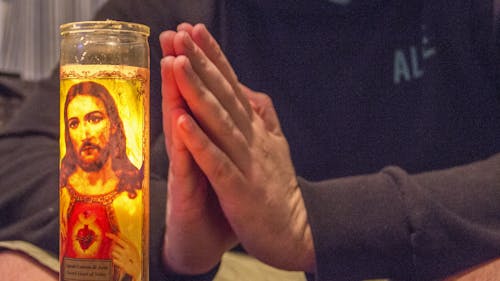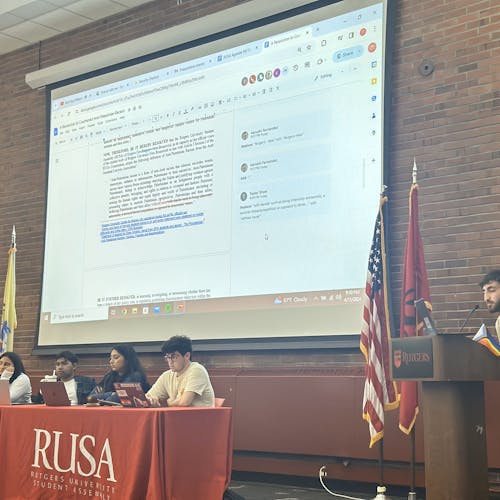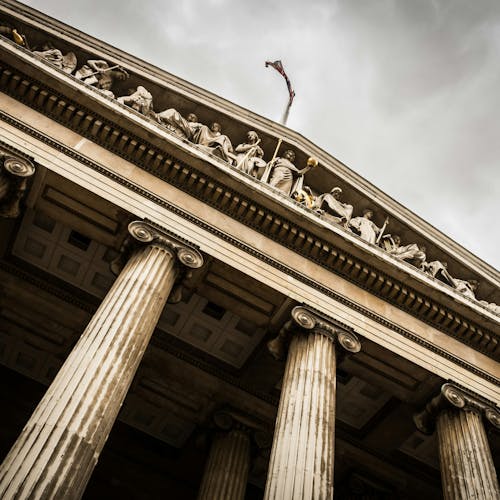Study finds implicit soul and afterlife beliefs persist into adulthood

Implicit beliefs in the soul or afterlife may continue into adulthood, even among those who explicitly deny the existence of the supernatural, according to a recent study conducted by Stephanie Anglin, a Rutgers doctoral student in the Department of Psychology.
Anglin, who has been researching this topic for five years, was interested in finding where people’s current implicit beliefs stem from. Implicit beliefs are the inner beliefs people hold, whereas explicit beliefs are those that people outwardly express.
Her study, “On the nature of implicit soul beliefs: When the past weighs more than the present,” took 349 student participants from different religious backgrounds and used an Implicit Association Test to first measure their current implicit beliefs of the soul and afterlife.
The computer test measured each participant’s automatic association between two concept words. The word “soul” was paired either with “real” or “fake” to gauge the subject’s beliefs about the soul. To address beliefs about the afterlife, the researchers paired the word “soul” with either “eternal” or “death.”
Anglin then questioned participants about their current beliefs and what they remember believing as children.
She found implicit beliefs about the soul and afterlife were strongly linked to childhood explicit beliefs, but were very different from their current explicit beliefs. Her findings held true for people of different religious affiliations.
A set of research prompted Anglin to conduct the study after she heard of an experiment published in the Journal of Personality and Social Psychology in 2009.
In the experiment, researchers asked subjects to sign a contract selling their souls to the experimenter for $2. Ninety percent of the participants refused, even though they were all told the contract was fake and claimed they did not believe in the afterlife, according to the study.
“One of the authors of that experiment, Jonathan Haidt, came to speak at Rutgers during one of my first years here,” she said. “His experiment definitely sparked questions for my own research.”
Anglin said her research was the first to use the Implicit Association Test to gauge beliefs of the soul and afterlife. She encourages other researchers to replicate the Implicit Association Test she used in her study to verify its soundness.
“The goal that makes science progress is replicating a study to show there is validity to the findings,” she said.
Anglin’s research will take a different track in the future, she said. She is more interested in studying why people are motivated to defend their explicit religious beliefs, despite the fact that these beliefs may not align with their implicit beliefs.
One of the most important next steps is examining whether the findings would differ in an older sample of participants, as opposed to the college-aged sample used in the study, she said.
College students might tend to be less religious or more questioning of their religion than older generations, she said.
Rev. Gregory Bezilla of Rutgers Canterbury House said via email that it could be difficult for young adults to practice their religious faith during college, even if they are “well formed in a faith tradition.”
The cultural environment at Rutgers tends to be indifferent or hostile to the practice of faith, he said.
In contrast to Montclair State University or The College of New Jersey, Rutgers does not operate a spiritual center that provides program space for campus religious communities, he said.
Some students may experience a crisis through their academic studies when they are exposed to critical thinking, which seeks to understand religious institutions as cultural phenomena, Bezilla said.
Rick Schieni, a School of Engineering senior, said what he has learned at Rutgers has confirmed his non-belief.
“I was already a non-believer coming in to college but the critical thinking and reasoning skills that I learned at Rutgers confirmed my initial beliefs,” he said.
He believes these skills, coupled with the generally “unpopular political beliefs” of organized religions on topics such as homosexuality and evolution, are going to lead college students away from such institutions.
When students are exposed to people who hold different beliefs and who directly challenge those beliefs, they may also experience a religious crisis, Bezilla said.
“Faith is strengthened through ecumenical and interfaith engagement — not by isolating believers from people who think differently — but by encouraging them to view positively the religious diversity of the campus and to honor the wisdom that is available from other religious traditions,” Bezilla said.



